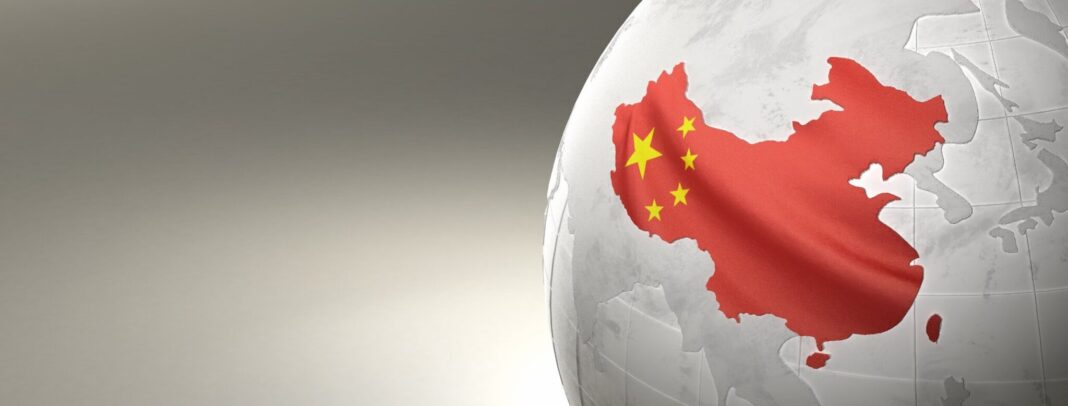South Korean President Yoon Suk Yeol ‘s request to Chinese Premier Li Qiang to address North Korea’s nuclear threat has brought a focus on China’s role in denuclearisation of North Korea. South Korean President Yoon Suk Yeol recently asked Chinese Premier Li Qiang if Beijing could do more as a UN Security Council member to address North Korea’s nuclear threat.
Yoon told Li China should do more to “fulfil its responsibility and role as a permanent member of the UN Security Council” and stressed that Seoul’s ties with Washington and Tokyo would only strengthen to counter North Korea, a statement from South Korea’s Presidential office showed. Meanwhile, North Korea launched its first “tactical nuclear attack submarine” by Kim Jong-un.
The submarine, named “Hero Kim Kun Ok” would be assigned to the fleet that patrols the waters between the Korean peninsula and Japan.The submarine was unveiled as North Korea gears up to celebrate the 75th anniversary of the country’s founding on Saturday, which is expected to be marked with a military parade in Pyongyang, attended by a high-level Chinese delegation. Pyongyang staged a “simulated tactical nuclear attack” drill with mock atomic warheads attached to two long-range cruise missiles that were test-fired into the ocean.
According to reports, the exercise wasto warn enemies of the “actual nuclear war danger” in response to joint military drills by the United States and South
Korea. Over the past year North Korea has moved to boost its navy with new nuclear weapons, including an underwater drone, warships, and its first operational missile submarine.
Meanwhile, the US, South Korea and Japan pledged to step up their militarycooperation and leaders’ summits. In mid-August the trilateral summit at Camp David, U.S. President Joe Biden and South Korean President Yoon Suk Yeol and Japanese Prime Minister Fumio Kishida, issued a statement in which they committed to consult promptly with each other during crises and to coordinate responses to regional challenges, provocations and threats affecting common interests. They also agreed to hold military training exercises annually and to share real-time information on North Korean missile launches by the end of 2023.
The countries promised to hold trilateral summits annually. The United States, South Korea, and Japan feel threatened by North Korea’s nuclear weapons programme as it poses a threat to their security. North Korea has conducted six nuclear tests and is developing intercontinental ballistic missiles that could reach the United States. This has led to fears that North Korea could use its nuclear weapons to attack its neighbours or the United States.
Precisely for these reasons, they have urged China to influence north korea not to develop nuclear weapons. According to Bruce W. Bennett, defence researcher with RAND corporation said China has not only allowed key technology and equipment to augment the North Korean nuclear program.It has also refused to take action to rein in the North
Korean nuclear program, and it has violated U.N. Security Council sanctions designed to counter North Korea’s nuclear efforts. Although the North Korea is banned from developing and testing any ballistic missile programs under U.N.
Security Council resolutions, it carried out a record number of missile tests last year and developed new, powerful, and advanced missile programs. China, permanent members of the UN Security Council, vetoed the USled efforts to impose additional sanctions against North Korea to hold it accountable for the ballistic missile launches.
Will or won’t China dissuade North Korea from pursuing nuclear programme?
China is North Korea’s only major ally but it has a complex relationship with North Korea. If it takes too tough a stance on North Korea, it could risk pushing North Korea to
collapse. This would be a major security risk for China, as it would create a refugee crisis and instability on China’s border.
If China takes too soft a stance on North Korea, it could allow North Korea to continue developing its nuclear weapons program. This would pose a direct threat to China’s
security and could destabilize the region. China seems to be trying to find a middle ground between these two extremes. It has imposed some sanctions on North Korea, but it has also continued to provide economic assistance.
According to United States Institute of Peace report ( 2019), China is a vital player in efforts to denuclearize North Korea and must be encouraged to play a constructive role. Because of Beijing’s outsized economic relationship with Pyongyang, its cooperation—or lack of cooperation—in sanctions enforcement largely determines the effectiveness of economic pressures. Moreover, North Korean leadership consults regularly with China and seeks its support in negotiations with Washington, even as it seeks to play Washington and Beijing off one another. China’s ability to shield Pyongyang from economic and political pressure makes Beijing an important factor in efforts to influence North Korea.

